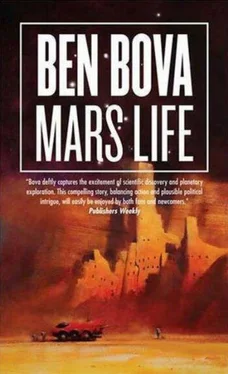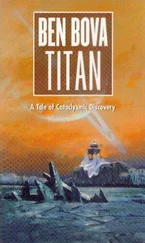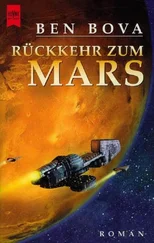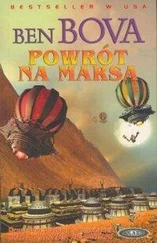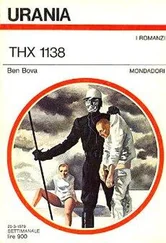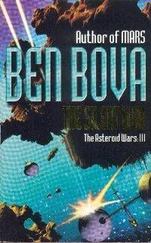I do not feel obliged to believe that the same God who has endowed us with sense, reason, and intellect has intended us to forgo their use.
—GALILEO GALILEI
To Barbara, my favorite columnist; to Maria and Mike Cote, my favorite editors; and to the memory of Carleton S. Coon, an early victim of political correctness.
This is a work of fiction. I have striven to make the scientific background of this story as accurate as possible. All the descriptions of the conditions existing on Mars are based solidly on the observations made by satellites in orbit around that planet and rovers trundling along its rust red sands.
However, I have not been constrained by the facts. I have created a scenario to explain the current conditions on Mars that is purely my own invention. While many scientists hope to find bacterial organisms living deep underground on Mars, there is no evidence that the red planet was once inhabited by an intelligent species. That speculation can only be disproved by a thorough exploration of Mars, an exploration conducted by human beings, in addition to robotic craft.
The description of the greenhouse flooding on Earth is also based on actual climatological data, although I have accelerated the timescale somewhat. With a little bad luck, many of us will live to see such flooding. Alas!
The political results of massive greenhouse flooding will be, I fear, to accelerate a trend toward ultraconservative religion-based governments almost everywhere on Earth, a trend that is already evident in much of the world, including the United States. With coastal cities flooded, productive farmlands parched with drought, and the electrical power grid collapsed, millions will be displaced from their homes and their livelihoods. They will demand safety and order, even at the price of individual liberties. History has shown all too often that people turn to authority when faced with disaster, and willingly surrender their freedom.
BEN BOVA
Naples, Florida
July 2007
Listen to the wisdom of the Old Ones.
The red world and the blue are brothers, both born of Father Sun. Separated since birth, bombarded by fiery Sky Demons, they found their own paths through time and space. The blue world grew large and rich, deep with water and teeming with life. The red world, farther from Father Sun, smaller, colder, also bore life—for a while.
The Sky Demons returned to both brother worlds, howling, burning, destroying with terrifying hammer blows. Many creatures of the blue world died under their mindless fury. On the red world almost all life was annihilated. Almost all.
Man Maker brought The People to the blue world, where in time they flourished. Strangest of all, Coyote—the Trickster—led The People back to the red world. In time.
Mars is the most earthlike planet in the solar system. But that doesn’t mean that it’s very much like Earth.
Barely half of Earth’s size, Mars orbits roughly one and a half times farther from the Sun than Earth does. It is a small, cold, seemingly barren world, a frozen desert of iron-rust sands from pole to pole.
Yet Mars is a spectacular world. The tallest mountain in the solar system is the aptly named Olympus Mons, a massive shield volcano three times higher than Everest, with a base as wide as the state of Idaho. The main caldera at Olympus Mons’s summit could swallow Mt. Everest entirely. Other huge volcanoes dot the Tharsis highlands, all of them long extinct.
Almost halfway across the planet is Hellas Planitia, an enormous impact crater nearly the size of Australia and some five kilometers deep, gouged out when a huge meteor slammed into Mars eons ago.
Then there is Valles Marineris, the Grand Canyon of Mars, a gigantic rift in the ground that stretches farther than the distance between Boston and San Francisco, a fracture that is seven kilometers deep in some places and so wide that explorers standing on one rim of it cannot see the other side because it is beyond the horizon.
The atmosphere of Mars is a mere wisp, thinner than Earth’s high stratosphere. It is composed mostly of carbon dioxide, with traces of nitrogen, oxygen, and inert gases such as argon and neon. The air pressure at the surface of Mars is about the same as the pressure thirty-some kilometers up in the high stratosphere of Earth’s atmosphere, so thin that an uncovered glass of water will immediately boil away even when the temperature is far below zero.
Which it is most of the time. Mars is a cold world. At midsummer noon on the Martian equator, the ground temperature might get as high as seventy degrees Fahrenheit. But at the height of a person’s nose the temperature would be zero, and that night it would plunge to a hundred below or even colder. The thin Martian atmosphere retains almost none of the Sun’s heat: it reradiates back into space, even at noon on the equator.
There is water on Mars, however. The polar caps that can be seen from Earth even with an amateur telescope contain frozen water, usually overlain with frozen carbon dioxide: dry ice. Explorers found layers of permafrost—frozen water—beneath the surface, enough underground water to make an ocean or at least a sizable sea.
There is abundant evidence that water once flowed across the surface of Mars. The entire northern hemisphere of the planet may once have been an ocean basin. Mars was once considerably warmer and wetter than it is now.
But today the surface of Mars is a barren desert of highly oxidized iron sands that give Mars its rusty red coloration. Those sands are loaded with superoxides; the planetwide desert of Mars is more like powdered bleach than soil in which plants could grow.
Yet there is life on Mars. The First Expedition discovered lichen-like organisms living inside cracks in the rocks littering the floor of the Grand Canyon of Mars. The Second Expedition found bacteria living deep underground, extremophiles that metabolize solid rock and water leached from the permafrost.
And the human explorers discovered an ancient cliff dwelling built into a niche high up the north wall of the Valles Marineris. There were once intelligent Martians, but they were wiped out in a cataclysm that scrubbed the entire planet clean of almost all life.
Curious explorers from Earth sought to understand those long-vanished Martians. But others of Earth preferred to ignore them, to pretend that they had never existed. In an irony that stretched across two worlds, the greatest discovery made on Mars led directly to the determined effort to put an end to the exploration of the red planet.
Carter Carleton woke from a troubled sleep. The vague memory of a dream faded in his mind even as he tried to recall it more clearly. Something about the university and the board of regents’ kangaroo court, back on Earth. Better forgotten, he told himself as he pulled the thin blanket off his legs. Better in the deep bosom of the ocean buried, like Shakespeare said.
As he sat up on his narrow bed the aroma of brewing coffee wafted into his cubicle. With it came the nasal twanging of some country-and-western song. “Damned cowboys and their recordings,” he muttered, planting his feet on the floor. Then he grinned inwardly. Those cowboys have doctorates in geology and biochemistry, he reminded himself.
Officially, the base was named in memory of the late Darryl C. Trumball, the Boston financier who had donated a considerable share of his personal fortune to the exploration of Mars. But everyone called it Tithonium Base, situated on the floor of the Tithonium Chasma section of the four-thousand-kilometer-long Valles Marineris, the immense Grand Canyon of Mars.
Читать дальше
